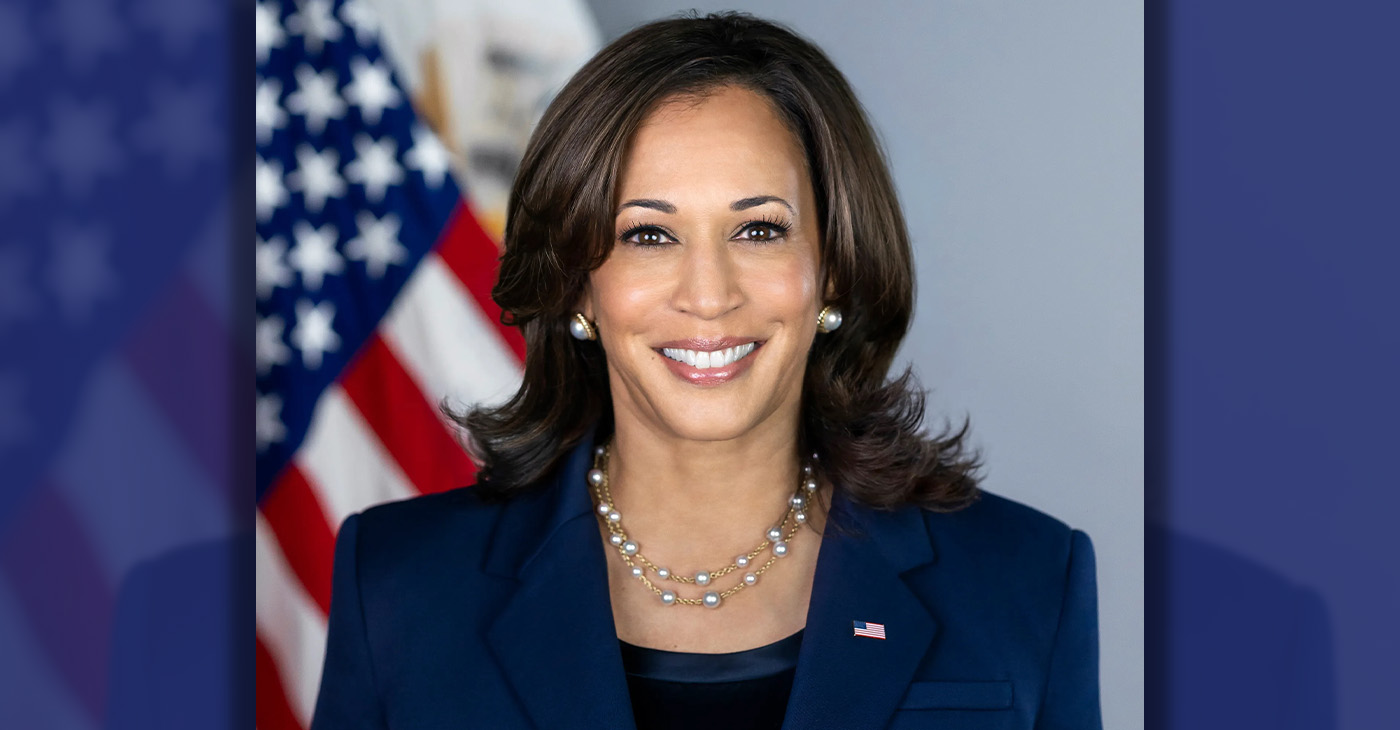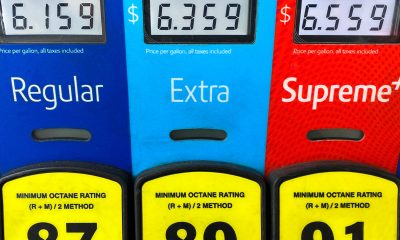Business
Once Vilified, BP Now Getting Credit for Gulf Tourism Boom

In this Wednesday, May 13, 2015 photo, tourists line the beaches in Gulf Shores, Ala. Industry officials say Gulf Coast tourism is surging, five years after the BP oil spill. (AP Photo/Brynn Anderson)
JAY REEVES, Associated Press
ORANGE BEACH, Ala. (AP) — With the Memorial Day holiday here, fallout from the oil spill that left Gulf Coast beaches smeared with gooey tar balls and scared away visitors in 2010 is being credited, oddly, with something no one imagined back then: An increase in tourism in the region.
Five years after the BP disaster, the petroleum giant that was vilified during heated town hall meetings for killing a way of life is now being praised by some along the coast for spending more than $230 million to help lure visitors back to an area that some feared would die because of the spill.
Questions remain about the long-term environmental impacts of the BP disaster, with a report released just last week finding a definite link between the spill and a record die-off of the bottlenose dolphins that tourists love to spot along the northern Gulf Coast. Pockets of oil still blot the sea floor and spots along Louisiana’s coast.
Meanwhile, many are still wrangling with BP over spill-related claims. Attorneys for businesses and individuals claiming damages from the spill announced a $211 million settlement last week with Transocean Ltd., owner of the failed Deepwater Horizon drilling rig.
Yet, at the same time, parking lots are full outside the same coastal hotels and condominium towers that struggled for business and slashed prices while crude was pouring into the gulf off Louisiana’s coast in 2010.
Visitors bob in surf where oil once washed in, and some restaurants have 90-minute waits for dinner on the weekend. Tourist business has doubled in Alabama’s largest beach towns since before the spill, officials say, and Pensacola Beach, Florida, is so clogged with visitors that traffic is a primary problem.
Many attribute the change in large part to the millions of dollars that BP spent on tourism grants and advertising that promoted the Gulf Coast nationwide to people who previously didn’t even realize that Alabama and Mississippi had coastlines.
“I’ve traveled as recently as the spring to California and there were people there who were saying, ‘Hey, I saw those commercials about Alabama,” said coastal condominium developer Bill Brett. “I really think those commercials helped.”
Brett is an owner of Brett/Robinson Real Estate, where he said business is up about 30 percent since the year before the spill. The company has developed 19 buildings with more than 3,200 condo units on the Alabama coast, including one that was finished with a $37 million settlement from BP after the spill.
The tourism surge isn’t happening in a vacuum: Many U.S. attractions have seen big increases during the same period as the economy recovered following the 2008 financial crisis and Americans returned to the road.
The theme parks of Orlando, Florida, helped draw a record 62 million visitors to the city last year, and the U.S. Travel Association expects Americans to spend about 5 percent more this Memorial Day than last.
But back in 2010, there were questions and fears over whether the tourist economy of the northern Gulf Coast would ever recover from the spill. Residents feared that images of oil-soaked birds and blackened beaches would permanently change travel patterns and leave towns like Gulf Shores, Alabama, and Destin, Florida, as the forgotten coast.
Ted Scarritt, who offers tourist cruises in Orange Beach aboard his 53-foot catamaran “Wild Hearts,” remembers crying and praying while the spill was happening. Scarritt, who also owns a beach service company, purchased the sailboat only months before the spill and had to keep it out of the oil-marred waters that summer.
Today all that seems like a bad, distant dream as he watches clear gulf waters slide past the hull during an afternoon of sailing off Alabama’s coast.
“We’re just amazingly thankful,” said Scarritt. “I think our area has recovered profoundly. You can look at the water right now, you can look at the beach. We’re fine.”
Picking up shells in the surf at Pensacola Beach, Autumn Ventling of Nashville, Tennessee, didn’t realize the spill ever occurred; she was just 18 at the time. Today, she said the white-sand beach and emerald-colored water appear beautiful, just like so many other beaches on the Gulf Coast.
“I can’t tell anything happened,” said Ventling, 23.
Part of that is because of a massive cleanup program BP conducted on beaches after the spill. For months, big machines with metal sifters dug deep to remove remaining mats of tar from the sand, which was then spread back on the seashore.
While the cleanup work was going on, BP was also shelling out cash to revive tourism.
BP spokesman Jason Ryan said the company provided $179 million in tourism promotion grants to the gulf states of Alabama, Florida, Louisiana and Mississippi, and it aired commercials nationally touting the region as recently as early 2013. The company hasn’t disclosed the cost of the spots, he said.
But under an agreement with plaintiff’s attorney who sued over the spill, BP provided another $57 million for private groups and government to promote tourism and seafood on the Gulf Coast.
The rebound has been a relief to people like Jeanne Dailey, owner of Newman-Dailey Vacation Rentals in Destin.
During the long summer of 2010, Dailey spent many sleepless nights fearing oil would wash ashore and kill the tourism business. The Destin area never got the heavy patches of oil that polluted Alabama beaches, Mississippi coastal islands and the boot of Louisiana, but the perception that the entire coast was coated in oil prompted hundreds of vacationers to cancel travel plans, she said.
“Once I made peace with the fact that I might have to declare bankruptcy, things started to get better,” she said.
BP’s ad campaign combined with sales incentives combined to lure people back to the area eventually led to a strong rebound, Dailey said. Five years later, her business is thriving and preparing to mark its 30th anniversary.
___
AP writer Melissa Nelson-Gabriel contributed to this story from Pensacola Beach, Florida.
Copyright 2015 The Associated Press. All rights reserved. This material may not be published, broadcast, rewritten or redistributed.
Activism
Oakland Post: Week of April 17 – 23, 2024
The printed Weekly Edition of the Oakland Post: Week of April 17 – 23, 2024

To enlarge your view of this issue, use the slider, magnifying glass icon or full page icon in the lower right corner of the browser window. ![]()
Business
V.P. Kamala Harris: Americans With Criminal Records Will Soon Be Eligible for SBA Loans
Speaking in Las Vegas on Jan. 27, Vice President Kamala Harris announced a forthcoming federal rule that will extend access to Small Business Administration (SBA) loans to Americans who have been convicted of felonies but have served their time. Small business owners typically apply for the SBA loans to start or sustain their businesses.

By California Black Media
Speaking in Las Vegas on Jan. 27, Vice President Kamala Harris announced a forthcoming federal rule that will extend access to Small Business Administration (SBA) loans to Americans who have been convicted of felonies but have served their time.
Small business owners typically apply for the SBA loans to start or sustain their businesses.
Harris thanked U.S. Rep. Steven Horsford (D-NV-04), the chair of the Congressional Black Caucus, for the work he has done in Washington to support small businesses and to invest in people.
“He and I spent some time this afternoon with business leaders and small business leaders here in Nevada. The work you have been doing to invest in community and to invest in the ambition and natural capacity of communities has been exceptional,” Harris said, speaking to a crowd of a few hundred people at the Brotherhood of Electrical Workers Hall in East Las Vegas.
On her daylong trip, Harris was joined by Horford, SBA Administrator Isabella Guzman, Interim Under Secretary of Commerce for Minority Business Development Agency (MBDA) Eric Morrissette, and Sen. Catherine Cortez Masto (D-Nev).
“Formerly incarcerated individuals face significant barriers to economic opportunity once they leave prison and return to the community, with an unemployment rate among the population of more than 27%,” the White House press release continued. “Today’s announcement builds on the Vice President’s work to increase access to capital. Research finds that entrepreneurship can reduce recidivism for unemployed formerly incarcerated individuals by as much as 30%.”
Business
G.O.P. Lawmakers: Repeal AB 5 and Resist Nationalization of “Disastrous” Contractor Law
Republican lawmakers gathered outside of the Employee Development Department in Sacramento on Jan. 23 to call for the repeal of AB5, the five-year old California law that reclassified gig workers and other independent contractors as W-2 employees under the state’s labor code.

By California Black Media
Republican lawmakers gathered outside of the Employee Development Department in Sacramento on Jan. 23 to call for the repeal of AB5, the five-year old California law that reclassified gig workers and other independent contractors as W-2 employees under the state’s labor code.
Organizers said they also held the rally to push back against current efforts in Washington to pass a similar federal law.
“We are here to talk about this very important issue – a battle we have fought for many years – to stop this disastrous AB 5 policy,” said Assembly Republican Leader James Gallagher (R-Yuba City).
Now, that threat has gone national as we have seen this new rule being pushed out of the Biden administration,” Gallagher continued.
On Jan. 10, the U.S. Department of Labor issued a new rule providing guidance on “on how to analyze who is an employee or independent contractor under the Fair Labor Standards Act (FLSA).”
“This final rule rescinds the Independent Contractor Status Under the Fair Labor Standards Act rule (2021 IC Rule), that was published on January 7, 2021, and replaces it with an analysis for determining employee or independent contractor status that is more consistent with the FLSA as interpreted by longstanding judicial precedent,” a Department of Labor statement reads.
U.S. Congressmember Kevin Kiley (R-CA-3), who is a former California Assemblymember, spoke at the rally.
“We are here today to warn against the nationalization of one of the worst laws that has ever been passed in California, which has devastated the livelihoods of folks in over 600 professions,” said Kiley, adding that the law has led to a 10.5% decline in self-employment in California.
Kiley blamed U.S Acting Secretary of Labor, July Su, who was the former secretary of the California Labor and Workforce Development Agency, for leading the effort to redefine “contract workers” at the federal level.
Kiley said two separate lawsuits have been filed against Su’s Rule – its constitutionality and the way it was enacted, respectively. He said he is also working on legislation in Congress that puts restrictions on the creation and implementation of executive branch decisions like Su’s.
Assemblymember Kate Sanchez (R-Rancho Santa Margarita) announced that she plans to introduce legislation to repeal AB 5 during the current legislative session.
“So many working moms like myself, who are also raising kids, managing households, were devastated by the effects of AB 5 because they lost access to hundreds of flexible professions,” Sanchez continued. “I’ve been told by many of these women that they have lost their livelihoods as bookkeepers, artists, family caregivers, designers, and hairstylists because of this destructive law.”
-

 Activism4 weeks ago
Activism4 weeks agoOakland Post: Week of March 20 – 26, 2024
-

 #NNPA BlackPress3 weeks ago
#NNPA BlackPress3 weeks agoCOMMENTARY: D.C. Crime Bill Fails to Address Root Causes of Violence and Incarceration
-

 #NNPA BlackPress3 weeks ago
#NNPA BlackPress3 weeks agoMayor, City Council President React to May 31 Closing of Birmingham-Southern College
-

 #NNPA BlackPress4 weeks ago
#NNPA BlackPress4 weeks agoCOMMENTARY: Lady Day and The Lights!
-

 #NNPA BlackPress3 weeks ago
#NNPA BlackPress3 weeks agoFrom Raids to Revelations: The Dark Turn in Sean ‘Diddy’ Combs’ Saga
-

 #NNPA BlackPress3 weeks ago
#NNPA BlackPress3 weeks agoBaltimore Key Bridge Catastrophe: A City’s Heartbreak and a Nation’s Alarm
-

 Activism3 weeks ago
Activism3 weeks agoOakland Post: Week of March 27 – April 2, 2024
-

 #NNPA BlackPress3 weeks ago
#NNPA BlackPress3 weeks agoBaltimore’s Key Bridge Struck by Ship, Collapses into Water
Business
Once Vilified, BP Now Getting Credit for Gulf Tourism Boom

In this Wednesday, May 13, 2015 photo, tourists line the beaches in Gulf Shores, Ala. Industry officials say Gulf Coast tourism is surging, five years after the BP oil spill. (AP Photo/Brynn Anderson)
JAY REEVES, Associated Press
ORANGE BEACH, Ala. (AP) — With the Memorial Day holiday here, fallout from the oil spill that left Gulf Coast beaches smeared with gooey tar balls and scared away visitors in 2010 is being credited, oddly, with something no one imagined back then: An increase in tourism in the region.
Five years after the BP disaster, the petroleum giant that was vilified during heated town hall meetings for killing a way of life is now being praised by some along the coast for spending more than $230 million to help lure visitors back to an area that some feared would die because of the spill.
Questions remain about the long-term environmental impacts of the BP disaster, with a report released just last week finding a definite link between the spill and a record die-off of the bottlenose dolphins that tourists love to spot along the northern Gulf Coast. Pockets of oil still blot the sea floor and spots along Louisiana’s coast.
Meanwhile, many are still wrangling with BP over spill-related claims. Attorneys for businesses and individuals claiming damages from the spill announced a $211 million settlement last week with Transocean Ltd., owner of the failed Deepwater Horizon drilling rig.
Yet, at the same time, parking lots are full outside the same coastal hotels and condominium towers that struggled for business and slashed prices while crude was pouring into the gulf off Louisiana’s coast in 2010.
Visitors bob in surf where oil once washed in, and some restaurants have 90-minute waits for dinner on the weekend. Tourist business has doubled in Alabama’s largest beach towns since before the spill, officials say, and Pensacola Beach, Florida, is so clogged with visitors that traffic is a primary problem.
Many attribute the change in large part to the millions of dollars that BP spent on tourism grants and advertising that promoted the Gulf Coast nationwide to people who previously didn’t even realize that Alabama and Mississippi had coastlines.
“I’ve traveled as recently as the spring to California and there were people there who were saying, ‘Hey, I saw those commercials about Alabama,” said coastal condominium developer Bill Brett. “I really think those commercials helped.”
Brett is an owner of Brett/Robinson Real Estate, where he said business is up about 30 percent since the year before the spill. The company has developed 19 buildings with more than 3,200 condo units on the Alabama coast, including one that was finished with a $37 million settlement from BP after the spill.
The tourism surge isn’t happening in a vacuum: Many U.S. attractions have seen big increases during the same period as the economy recovered following the 2008 financial crisis and Americans returned to the road.
The theme parks of Orlando, Florida, helped draw a record 62 million visitors to the city last year, and the U.S. Travel Association expects Americans to spend about 5 percent more this Memorial Day than last.
But back in 2010, there were questions and fears over whether the tourist economy of the northern Gulf Coast would ever recover from the spill. Residents feared that images of oil-soaked birds and blackened beaches would permanently change travel patterns and leave towns like Gulf Shores, Alabama, and Destin, Florida, as the forgotten coast.
Ted Scarritt, who offers tourist cruises in Orange Beach aboard his 53-foot catamaran “Wild Hearts,” remembers crying and praying while the spill was happening. Scarritt, who also owns a beach service company, purchased the sailboat only months before the spill and had to keep it out of the oil-marred waters that summer.
Today all that seems like a bad, distant dream as he watches clear gulf waters slide past the hull during an afternoon of sailing off Alabama’s coast.
“We’re just amazingly thankful,” said Scarritt. “I think our area has recovered profoundly. You can look at the water right now, you can look at the beach. We’re fine.”
Picking up shells in the surf at Pensacola Beach, Autumn Ventling of Nashville, Tennessee, didn’t realize the spill ever occurred; she was just 18 at the time. Today, she said the white-sand beach and emerald-colored water appear beautiful, just like so many other beaches on the Gulf Coast.
“I can’t tell anything happened,” said Ventling, 23.
Part of that is because of a massive cleanup program BP conducted on beaches after the spill. For months, big machines with metal sifters dug deep to remove remaining mats of tar from the sand, which was then spread back on the seashore.
While the cleanup work was going on, BP was also shelling out cash to revive tourism.
BP spokesman Jason Ryan said the company provided $179 million in tourism promotion grants to the gulf states of Alabama, Florida, Louisiana and Mississippi, and it aired commercials nationally touting the region as recently as early 2013. The company hasn’t disclosed the cost of the spots, he said.
But under an agreement with plaintiff’s attorney who sued over the spill, BP provided another $57 million for private groups and government to promote tourism and seafood on the Gulf Coast.
The rebound has been a relief to people like Jeanne Dailey, owner of Newman-Dailey Vacation Rentals in Destin.
During the long summer of 2010, Dailey spent many sleepless nights fearing oil would wash ashore and kill the tourism business. The Destin area never got the heavy patches of oil that polluted Alabama beaches, Mississippi coastal islands and the boot of Louisiana, but the perception that the entire coast was coated in oil prompted hundreds of vacationers to cancel travel plans, she said.
“Once I made peace with the fact that I might have to declare bankruptcy, things started to get better,” she said.
BP’s ad campaign combined with sales incentives combined to lure people back to the area eventually led to a strong rebound, Dailey said. Five years later, her business is thriving and preparing to mark its 30th anniversary.
___
AP writer Melissa Nelson-Gabriel contributed to this story from Pensacola Beach, Florida.
Copyright 2015 The Associated Press. All rights reserved. This material may not be published, broadcast, rewritten or redistributed.
Activism
Oakland Post: Week of April 17 – 23, 2024
The printed Weekly Edition of the Oakland Post: Week of April 17 – 23, 2024

To enlarge your view of this issue, use the slider, magnifying glass icon or full page icon in the lower right corner of the browser window. ![]()
Business
V.P. Kamala Harris: Americans With Criminal Records Will Soon Be Eligible for SBA Loans
Speaking in Las Vegas on Jan. 27, Vice President Kamala Harris announced a forthcoming federal rule that will extend access to Small Business Administration (SBA) loans to Americans who have been convicted of felonies but have served their time. Small business owners typically apply for the SBA loans to start or sustain their businesses.

By California Black Media
Speaking in Las Vegas on Jan. 27, Vice President Kamala Harris announced a forthcoming federal rule that will extend access to Small Business Administration (SBA) loans to Americans who have been convicted of felonies but have served their time.
Small business owners typically apply for the SBA loans to start or sustain their businesses.
Harris thanked U.S. Rep. Steven Horsford (D-NV-04), the chair of the Congressional Black Caucus, for the work he has done in Washington to support small businesses and to invest in people.
“He and I spent some time this afternoon with business leaders and small business leaders here in Nevada. The work you have been doing to invest in community and to invest in the ambition and natural capacity of communities has been exceptional,” Harris said, speaking to a crowd of a few hundred people at the Brotherhood of Electrical Workers Hall in East Las Vegas.
On her daylong trip, Harris was joined by Horford, SBA Administrator Isabella Guzman, Interim Under Secretary of Commerce for Minority Business Development Agency (MBDA) Eric Morrissette, and Sen. Catherine Cortez Masto (D-Nev).
“Formerly incarcerated individuals face significant barriers to economic opportunity once they leave prison and return to the community, with an unemployment rate among the population of more than 27%,” the White House press release continued. “Today’s announcement builds on the Vice President’s work to increase access to capital. Research finds that entrepreneurship can reduce recidivism for unemployed formerly incarcerated individuals by as much as 30%.”
Business
G.O.P. Lawmakers: Repeal AB 5 and Resist Nationalization of “Disastrous” Contractor Law
Republican lawmakers gathered outside of the Employee Development Department in Sacramento on Jan. 23 to call for the repeal of AB5, the five-year old California law that reclassified gig workers and other independent contractors as W-2 employees under the state’s labor code.

By California Black Media
Republican lawmakers gathered outside of the Employee Development Department in Sacramento on Jan. 23 to call for the repeal of AB5, the five-year old California law that reclassified gig workers and other independent contractors as W-2 employees under the state’s labor code.
Organizers said they also held the rally to push back against current efforts in Washington to pass a similar federal law.
“We are here to talk about this very important issue – a battle we have fought for many years – to stop this disastrous AB 5 policy,” said Assembly Republican Leader James Gallagher (R-Yuba City).
Now, that threat has gone national as we have seen this new rule being pushed out of the Biden administration,” Gallagher continued.
On Jan. 10, the U.S. Department of Labor issued a new rule providing guidance on “on how to analyze who is an employee or independent contractor under the Fair Labor Standards Act (FLSA).”
“This final rule rescinds the Independent Contractor Status Under the Fair Labor Standards Act rule (2021 IC Rule), that was published on January 7, 2021, and replaces it with an analysis for determining employee or independent contractor status that is more consistent with the FLSA as interpreted by longstanding judicial precedent,” a Department of Labor statement reads.
U.S. Congressmember Kevin Kiley (R-CA-3), who is a former California Assemblymember, spoke at the rally.
“We are here today to warn against the nationalization of one of the worst laws that has ever been passed in California, which has devastated the livelihoods of folks in over 600 professions,” said Kiley, adding that the law has led to a 10.5% decline in self-employment in California.
Kiley blamed U.S Acting Secretary of Labor, July Su, who was the former secretary of the California Labor and Workforce Development Agency, for leading the effort to redefine “contract workers” at the federal level.
Kiley said two separate lawsuits have been filed against Su’s Rule – its constitutionality and the way it was enacted, respectively. He said he is also working on legislation in Congress that puts restrictions on the creation and implementation of executive branch decisions like Su’s.
Assemblymember Kate Sanchez (R-Rancho Santa Margarita) announced that she plans to introduce legislation to repeal AB 5 during the current legislative session.
“So many working moms like myself, who are also raising kids, managing households, were devastated by the effects of AB 5 because they lost access to hundreds of flexible professions,” Sanchez continued. “I’ve been told by many of these women that they have lost their livelihoods as bookkeepers, artists, family caregivers, designers, and hairstylists because of this destructive law.”
-

 Activism4 weeks ago
Activism4 weeks agoOakland Post: Week of March 20 – 26, 2024
-

 #NNPA BlackPress3 weeks ago
#NNPA BlackPress3 weeks agoCOMMENTARY: D.C. Crime Bill Fails to Address Root Causes of Violence and Incarceration
-

 #NNPA BlackPress3 weeks ago
#NNPA BlackPress3 weeks agoMayor, City Council President React to May 31 Closing of Birmingham-Southern College
-

 #NNPA BlackPress4 weeks ago
#NNPA BlackPress4 weeks agoCOMMENTARY: Lady Day and The Lights!
-

 #NNPA BlackPress3 weeks ago
#NNPA BlackPress3 weeks agoFrom Raids to Revelations: The Dark Turn in Sean ‘Diddy’ Combs’ Saga
-

 #NNPA BlackPress3 weeks ago
#NNPA BlackPress3 weeks agoBaltimore Key Bridge Catastrophe: A City’s Heartbreak and a Nation’s Alarm
-

 Activism3 weeks ago
Activism3 weeks agoOakland Post: Week of March 27 – April 2, 2024
-

 #NNPA BlackPress3 weeks ago
#NNPA BlackPress3 weeks agoBaltimore’s Key Bridge Struck by Ship, Collapses into Water





















































Leave a Reply